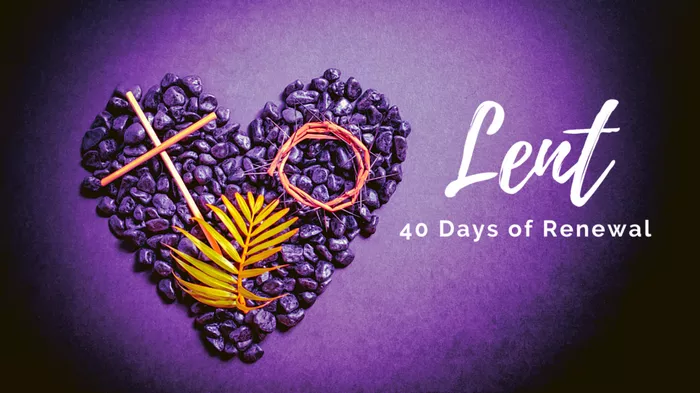In the liturgical calendar of the Catholic Church, Good Friday holds profound significance as the day commemorating the crucifixion of Jesus Christ. It is a day of solemn reflection, penance, and fasting for Catholics worldwide. Fasting on Good Friday is a spiritual practice deeply rooted in tradition, carrying symbolic weight and serving as a reminder of Christ’s sacrifice. Understanding the rules and guidelines for fasting on this holy day is essential for adherents to observe this sacred tradition with reverence and sincerity.
The Importance of Fasting on Good Friday
Fasting has long been a spiritual discipline practiced by various religious traditions, including Catholicism. It involves abstaining from food or certain types of food for a specified period, typically as an act of penance, self-discipline, and spiritual focus. Good Friday, marking the crucifixion of Jesus Christ, is a day of particular significance for fasting in the Catholic faith.
The act of fasting on Good Friday is multifaceted. It symbolizes solidarity with Jesus Christ in his suffering and death, as well as repentance for personal sins. By voluntarily denying oneself the comforts of food, Catholics seek to deepen their spiritual connection to Christ’s sacrifice and reflect on the meaning of redemption.
The Rules and Guidelines for Fasting on Good Friday
The Catholic Church provides clear rules and guidelines regarding fasting on Good Friday, outlining who is obligated to fast and the extent of the fasting practice. These rules are intended to foster a sense of communal solidarity and spiritual unity among Catholics worldwide.
Who is Obligated to Fast?
Fasting on Good Friday is obligatory for Catholics aged 18 to 59, inclusive. Those who fall within this age range are expected to observe the prescribed fasting practices unless they have a legitimate reason excusing them from the obligation. Legitimate reasons may include illness, pregnancy, nursing, or other circumstances that would make fasting physically or medically unwise.
The Nature of the Fast
The fasting requirement on Good Friday involves abstaining from consuming meat and limiting the quantity and quality of food consumed throughout the day. Traditionally, Catholics are permitted to eat one full meal and two smaller meals, known as collations, which together should not equal the size of the full meal. These meals should be simple and frugal, devoid of extravagant or indulgent foods.
Abstinence from Meat
In addition to fasting, Catholics are also obligated to abstain from eating meat on Good Friday. This abstinence extends to all land animals, including beef, pork, chicken, and lamb. The consumption of fish, eggs, and dairy products is permitted on Good Friday, as they are not considered meat under the traditional definition.
Exceptions and Dispensations
While fasting and abstinence are the general rules for Good Friday, certain exceptions and dispensations may apply in specific circumstances. For example, individuals with medical conditions or dietary requirements that necessitate the consumption of meat may be excused from the abstinence requirement. Similarly, bishops and pastors have the authority to grant dispensations to individuals or communities for valid reasons.
The Spiritual Dimension
Beyond the external observance of fasting and abstinence, Good Friday serves as a time for deep spiritual reflection and contemplation for Catholics. It is an opportunity to meditate on the passion and death of Jesus Christ, to acknowledge one’s own sins, and to seek reconciliation and renewal through the sacrament of penance.
Conclusion
Fasting on Good Friday is a venerable tradition in the Catholic Church, rooted in scripture, tradition, and the teachings of the Church. It is a solemn and sacred practice that calls Catholics to reflect on the central mystery of their faith—the passion, death, and resurrection of Jesus Christ. By observing the rules and guidelines for fasting on Good Friday with sincerity and devotion, Catholics participate in the collective remembrance of Christ’s sacrifice and the redemption it offers to all humanity.
FAQs:
1. How should Catholics fast on Good Friday?
Catholics should fast on Good Friday by abstaining from meat and limiting their food intake to one full meal and two smaller meals, which together should not exceed the size of the full meal. The meals should be simple and frugal, reflecting the solemnity of the occasion. Additionally, Catholics should engage in prayer, reflection, and acts of penance throughout the day to deepen their spiritual connection to Christ’s sacrifice.
2. What are Catholics not allowed to do on Good Friday?
On Good Friday, Catholics are not allowed to eat meat, as it is a day of abstinence. This includes all land animals such as beef, pork, chicken, and lamb. Additionally, Catholics are encouraged to refrain from engaging in activities or behaviors that are inconsistent with the solemnity of the day, such as excessive entertainment or indulgence.
3. How long is Good Friday Catholic Mass?
The Good Friday Catholic Mass typically lasts for about one hour, although the exact duration may vary depending on the parish and the specific liturgical elements included in the service. The Mass on Good Friday is characterized by its solemnity and simplicity, focusing on the reading of the Passion narrative, prayers of intercession, veneration of the cross, and Holy Communion. It is a deeply reverent and reflective service that invites Catholics to enter into the mystery of Christ’s passion and death.

